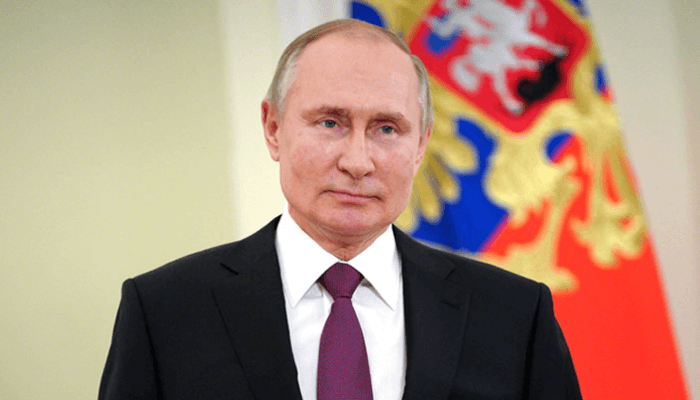African leaders will look to Russian President Vladimir Putin for concrete promises on grain supplies at a summit starting today, with some also likely to seek clarity and assurances on the future of Wagner mercenaries in the continent.
The gathering in St Petersburg will take place 10 days after Putin quit the Black Sea agreement that had enabled Ukraine – like Russia, a major grain exporter – to ship food out of its southern ports despite the 17-month-old conflict.
Chicago wheat futures, a benchmark of global prices, have risen around 20% since Russia ended the deal on July 17.
They are now at their highest levels since February, though well below their peaks of 2022.
Putin wrote in a pre-summit article on the Kremlin website that the arrangement had been “shamelessly” exploited by U.S. and European trading firms and less than 3 per cent of the grain shipped had reached the poorest countries – ignoring the wider effect of the deal in pushing down prices worldwide.
Mvemba Dizolele, director of the Africa Program at the Washington-based Center for Strategic and International Studies, said food insecurity would be the top issue for Africans.
“Prices just went through the roof in a lot of these countries.
“So if you are any African leader out there, that’s the last thing you want… It’s absolutely an important national security issue for a lot of these African countries,” he said.
Putin says Russia is expecting a record harvest this year and is ready to fill the gap for African countries by supplying grain both commercially and for free.
Russia has just over 3 million tonnes of grain available in a state intervention fund, but Russian and foreign analysts said they expected only symbolic amounts to be dispersed free as aid.
“I think we should be looking much more at the (commercial) grain deliveries that Russia’s going to be exporting directly to African countries.
“And whether Russia can get a third-party intermediary like Turkey or Qatar to help them with that,” said Samuel Ramani, an analyst at London’s RUSI think-tank and author of the book “Russia in Africa”.
A foreign ministry official said Moscow was proposing logistics corridors and “hubs” for shipping food, fertiliser, and other products but gave no details or timings.
Russia is already exporting record quantities of wheat but says its ability to sell it internationally is hampered by Western sanctions affecting banking and insurance.
For Putin, prevented from travelling to many countries because of an arrest warrant from the International Criminal Court over the deportation of Ukrainian children to Russia, the event is a chance to hold center-stage before leaders from an entire continent.
Russia says 49 African delegations will take part but only 17 heads of state – sharply down from the 45 who attended the last such event in 2019.
It accuses the West of trying to sabotage the event by dissuading leaders from coming.
In the week of the summit, the United States has sent a top Treasury official to visit Kenya and Somalia, and Ukraine’s foreign minister is making his third wartime tour of Africa.
The West accuses Moscow of “weaponising” grain, pointing to Russia’s withdrawal from the Black Sea deal and its subsequent bombing of Ukrainian ports and food storage sites.
For the most part, African states have refrained from criticising Russia over the grain deal, in keeping with their refusal since the start of the war to condemn Moscow’s invasion.
Some have had strong ties with Moscow since the Cold War; many are sympathetic to Putin’s idea of countering U.S. dominance in a new “multipolar” world order.
Read also: How Russia powers energy efficiency with local content
“If you’re an African country, do you want this guy (Putin) to be totally, absolutely isolated?” Dizolele said, noting that Russia backed African countries at the UN, had defence and security agreements with some of them, and gave scholarships to their students.
Behind the scenes, some countries are expected to seek more information from Putin about the future of the Wagner mercenary group after it staged a short-lived mutiny in Russia last month.
Wagner provides security muscle for governments in the Central African Republic and Mali.
The United States this week imposed sanctions on three Malian officials, including the defence minister, accusing them of making their people vulnerable to Wagner’s “destabilising activities and human rights abuses” while helping it fund its operations in Ukraine.
In May, the military leader of Burkina Faso rejected an accusation by the president of neighbouring Ghana that it too had hired Russian mercenaries.
Russia says there will be further discussion of an African peace initiative for Ukraine, and a spokesperson for South African President Cyril Ramaphosa said the focus would be on “confidence-building measures that will set the warring parties on the path to peace”.
But Putin’s response, when Ramaphosa and other African leaders presented the proposal to him last month, was to repeat a familiar list of accusations against Ukraine and the West. Ukraine said any ceasefire now would only freeze Russian territorial gains and give Putin’s forces a breathing space to regroup.
“The African peace plan, I think, is going to struggle to gain traction,” Ramani said.
“It really is a non-starter for both sides.”
Join BusinessDay whatsapp Channel, to stay up to date
Open In Whatsapp





